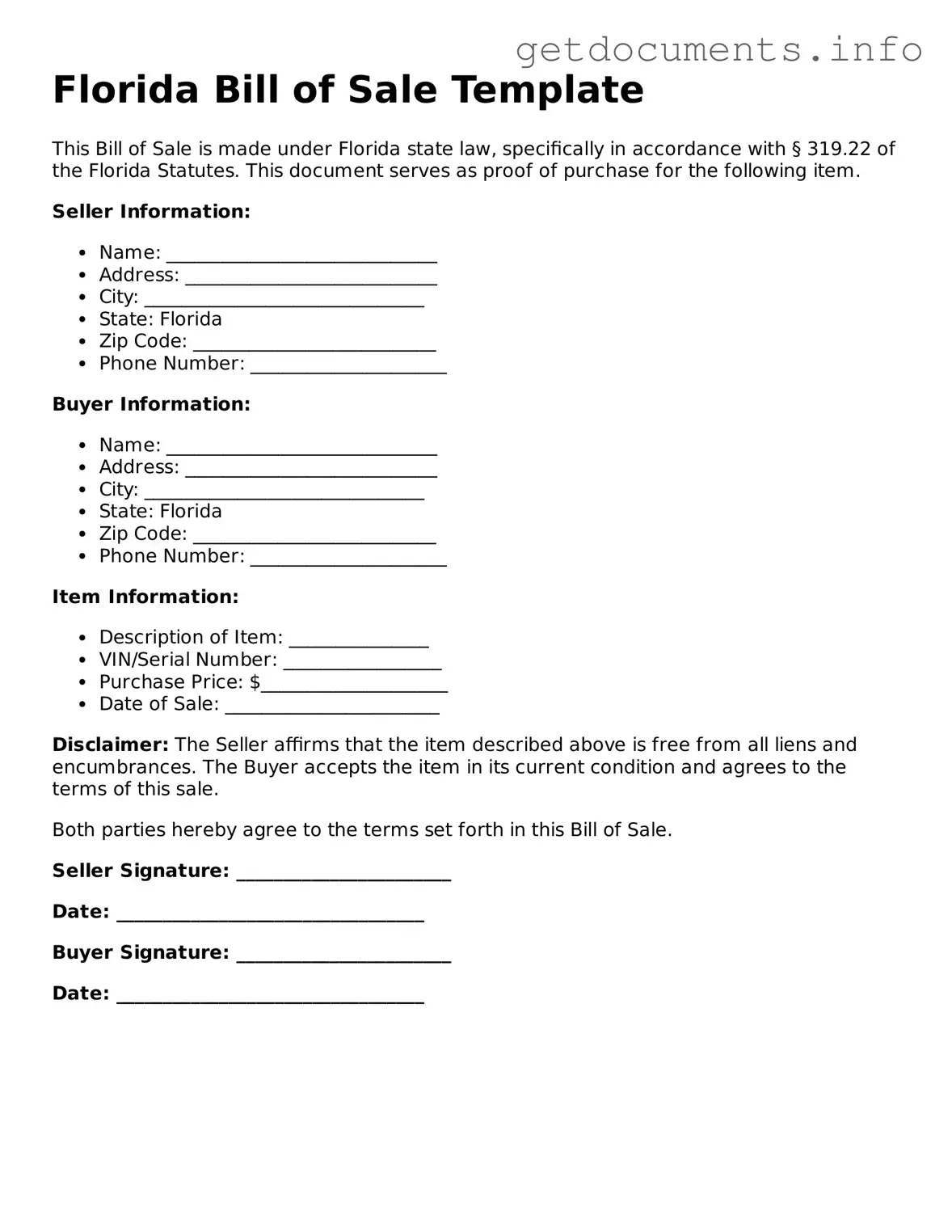Free Bill of Sale Template for Florida
The Florida Bill of Sale is a legal document that serves as proof of the transfer of ownership of personal property from one individual to another. This form outlines essential details such as the buyer's and seller's information, a description of the item being sold, and the agreed-upon purchase price. To ensure a smooth transaction, it is crucial to complete this form accurately; fill it out by clicking the button below.
Access Bill of Sale Editor

Free Bill of Sale Template for Florida
Access Bill of Sale Editor
Got places to be? Complete the form fast
Fill out Bill of Sale online and avoid printing or scanning.
Access Bill of Sale Editor
or
⇩ PDF File
